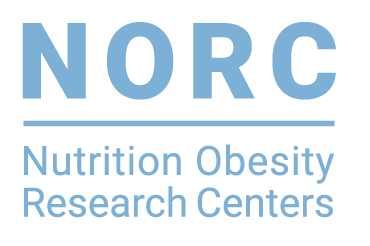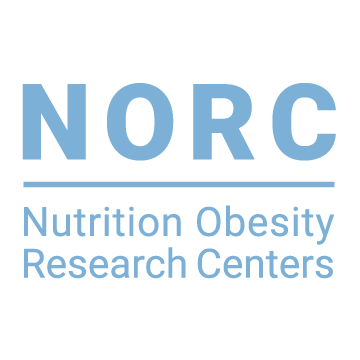Category: Blogs
Endogenous Oxytocin Levels in Relation to Food Intake, Menstrual Phase, and Age in Females
Summary: Though oxytocin is most commonly known for its role in uterine contraction during delivery, recent evidence demonstrates that it also has an anorexigenic effect. Elizabeth Lawson and colleagues investigated the endogenous oxytocin response to food intake and its relationship to sensations of hunger and satiety in 55 normal weight, pre-menopausal females. Oxytocin levels were higher in younger women and were lower in the early-mid follicular phase of the menstrual cycle. Oxytocin levels decreased significantly during the first hour following a standardized meal, with a mean 20% reduction in levels compared to baseline. Fasting levels of oxytocin were not associated … Read More »
Categories: Blogs, Featured News, News, Newsletters, Publications Tags: Harvard Medical SchoolLongitudinal 5-year evaluation of bone density and microarchitecture after Roux-en-Y gastric bypass surgery.
Summary: Previous work has suggested a deleterious short-term effect of Roux-en-Y Gastric Bypass (RYGB) on bone mineral density (BMD), but the long-term effects of RYGB on bone health are not well understood. To investigate this question, NORCH member Dr. Elaine Yu and colleagues prospectively followed serum bone markers and bone density in 21 adults who received RYGB. Bone density was assessed using serial dual-energy X-ray absorptiometry (DXA), quantitative computed tomography (QCT), and high resolution peripheral QCT (HR-pQCT) scanning. Bone turnover markers type I collage C-terminal telopeptide (CTX) and procollagen type I N-terminal propeptide (P1NP) were elevated 2 years after surgery … Read More »
Categories: Blogs, Featured News, Publications Tags: Harvard Medical SchoolTime-Dependent Molecular Responses Differ between Gastric Bypass and Dieting but Are Conserved Across Species.
Summary: Roux-en-Y Gastric Bypass surgery (RYGB) has metabolic effects that may be independent of the weight loss achieved following the procedure. To better characterize these effects, NORCH member Nicholas Stylopoulos, MD, and colleagues addressed the metabolic differences between weight loss achieved by RYGB vs. weight loss achieved by dieting, investigating tissue-specific molecular changes in each condition in a murine model and also comparing molecular signatures of each condition in murine and human models. Although equivalent weight loss was achieved in C57BL/6 mice undergoing RYGB compared to weight-matched sham (WMS) controls, there was a vastly different molecular signature in the adipose … Read More »
Categories: Blogs, Featured News, Publications Tags: Harvard Medical SchoolUNC Nutrition Research Institute Seminar Series
Anorexia nervosa and the intestinal microbiota: do gut microbes influence weight gain and behavior during clinical re-nourishment? Date and Time: Thursday, April 12, 2018 12:00 PM – 1:00 PM Eastern Speaker: Ian Carroll, PhD (Assistant Professor, Department of Nutrition, University of North Carolina at Chapel Hill) Abstract: Abstract: Anorexia nervosa (AN), a psychiatric disorder characterized by extreme weight dysregulation commonly presents with comorbid anxiety. AN carries the highest mortality rate of all psychiatric illnesses and relapse is frequent. Therapeutic re-nourishment in AN is based primarily on clinical opinion and guidelines, and does not address the underlying etiology of the disorder. … Read More »
Categories: Blogs, Featured News, News Tags: University of North Carolina at Chapel HillBoston NORC Obesity Research Club
Inaugural Meeting of the NORC Obesity Research Club at Boston University.
Categories: Blogs, Featured News Tags: BostonGenetic Evidence That Carbohydrate-Stimulated Insulin Secretion Leads to Obesity
Summary: The carbohydrate-insulin model of obesity postulates that increased insulin secretion in response to a high glycemic load diet drives excess weight gain. Because of the close interrelationship between obesity, insulin resistance, and hyperinsulinism, however, investigating this hypothesis is often complicated by possibilities of confounding and reverse causation. Dr. Jose Florez and colleagues avoided these issues by using a bidirectional Mendelian randomization study to test the carbohydrate-insulin model of obesity. They assessed (1) whether a set of genetic variants associated with increased glucose-stimulated insulin secretion predict obesity and (2) whether a separate set of genetic variants associated with obesity predict … Read More »
Categories: Blogs, Featured News, Publications Tags: Harvard Medical SchoolA Short Course on Nutrigenetics, Nutrigenomics and Precision Nutrition
Designed for graduate students, health professionals and nutrition scientists from academia and industry Presented by UNC Nutrition Research Institute (NRI) and the UNC Nutrition and Obesity Research Center (NORC) Short Course Focus This workshop-style course will provide the fundamental concepts of nutrigenetics, nutrigenomics and personalized nutrition through cutting edge presentations and hands-on experiences. Attendees will have the opportunity to participate in a personal DNA test and examine their own nutrigenetic data. Click here for more information and to register. Rates General – $800.00 Graduate Student – $350.00 Postdoctoral Fellow – $450.00 All-inclusive Registration On top of the great short-course content and … Read More »
Categories: Blogs, Featured News Tags: University of North Carolina at Chapel HillDefining Precision Nutrition Symposium
Presented By UNC Nutrition Research Institute Kannapolis, North Carolina Symposium Focus the genetic, epigenetic, microbiome, and environmental sources of human metabolic variability how these variabilities are related to different requirements for, and responses to, nutrients methods used to assess the above Speakers Keynote: Jeremy Nicholson, PhD, Imperial College London Understanding Gene-Environment-Diet and Lifestyle Interactions in Human Health: A Molecular Phenomic Approach Lorraine Brennan, PhD, University College Dublin Metabotyping for Optimal Nutrition Ahmed El-Sohemy, PhD, University of Toronto Genetic Testing for Personalized Nutrition Eric Martens, PhD, University of Michigan Molecular Mechanisms of Gut Bacteria and Metabolism of Glycans Susan Sumner, PhD, … Read More »
Categories: Blogs, Featured News, News Tags: University of North Carolina at Chapel HillUAB Nutrition Obesity Research Center – Social Media Update
New diet says limit hours spent eating instead of calories. https://www.norc.uab.edu/resources/social_media
Categories: Blogs, Featured News, News Tags: University of Alabama at BirminghamBLOG – Hyperuricemia and Gout
Uric acid is a chemical that is created when the body breaks down purines (purines are building blocks of our DNA). Under normal conditions, uric acid dissolves in blood, is processed in the kidneys and excreted in urine. However, if the body makes too much uric acid or the kidneys are not able to clear enough of it, uric acid can accumulate in blood. High levels of uric acid (hyperuricemia) form crystals in the joints and kidneys and pose increased risk for gout, kidney and heart disease. Most of the uric acid in blood comes from foods and drinks. These … Read More »
Categories: Blogs Tags: University of North Carolina at Chapel Hill
